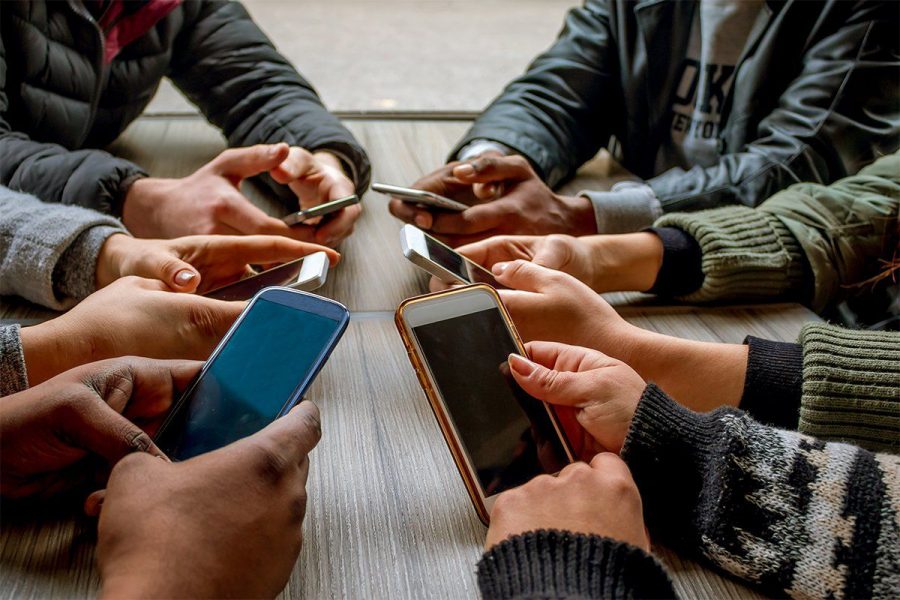A new study suggests that people who suffer from smartphone addiction might experience chemical changes in the brain. Researchers believe smartphone addiction produces anxiety, depression, insomnia and it can even lead to the shrink of the brain.
People are getting more and more addicted to the use of social media and smartphones, and this is especially true when it comes to young people. Creating a dependence on the phone can affect people’s relationships, sleep patterns and productivity. However, according to experts, people can overcome this addiction.
“There have been multiple studies published [that link] addiction to alcohol and other substances with chemical imbalances in different regions of the brain, but this is the first study I’ve read about internet addiction” that shows such a link, said Dr. Max Wintermark, a professor of radiology and the chief of neuroradiology at Stanford University.

Smartphones can harm the brain
We live in an era where it is difficult to escape from screens. Internet, phones, computers and other digital devices are without a doubt helpful tools to carry out tasks and keep in touch with people and with everything that is going on. However, people are getting more and more dependant on screens and technology to the point when it can be harming.
According to research presented on November 30, at the Radiological Society of North America’s annual meeting in Chicago, pathological use of smartphones can damage the brain chemistry. The study was carried out by Dr. Hyung Suk Seo, a professor of neuroradiology at Korea University in Seoul, South Korea.
He says to have found an imbalance of chemicals in the brain in teenagers that are addicted to the use of internet and smartphones. This imbalance is similar to that of people experiencing anxiety and depression.
To get to these results, researchers examined the brains of 19 internet and smartphone-addicted people and 19 non-addicted people. The average age of participants was 15.5. Both groups had nine men. They went through magnetic resonance spectroscopies (MRS), a form of MRI that can reveal changes in the chemical composition of the brain.
The teenagers who were addicted showed an apparent overabundance of a neurotransmitter called gamma-aminobutyric acid (GABA) in one region of the limbic system if compared to the ones who didn’t present an addiction to smartphones. The limbic system is the brain’s emotional control center.
GABA is an inhibitory neurotransmitter, which means that it blocks nerve cells from working. GABA is found in the brain of every single person in the world. The difference is that too much of this neurotransmitter in the wrong areas can have terrible effects.
“When the normal function of the limbic system is disturbed, patients can develop anxiety, depression or addiction,” said Dr. Max Wintermark, who was not involved in the development of the new research but confessed he is intrigued by the impacts of the growing number of phones and web devises in society.
Twelve participants of the addicted group of the study were subjected to cognitive behavioral therapy for their addiction with 75-minute sessions of mindfulness exercises. They had to carry out various activities to express emotions and to recognize their internet impulses.

Smartphone addiction can be overcome with cognitive behavioral therapy
Their dependence was measured using standardized questionnaires. Through these surveys, they intended to determine how severe their addiction was, focusing on how internet usage affects their productivity, social life, sleeping patterns, feelings, and daily routines. The higher the score, the more severe the addiction was.
Therefore, just as any other addiction, such as gambling or alcohol, smartphone, and internet addiction have significant consequences on the person. Researchers said that they need to continue to study the clinical implication of this addiction, mainly because the study was made with a small group of people.
The good news is that smartphone-addicted people can go back to normality after quitting phones for a couple of weeks or after the cognitive behavioral therapy. They say this study was critical to understand the way this addiction works and to develop treatments for it.
“With appropriate intervention, the teens were able to basically correct those chemical changes” in their brains, Wintermark said. “That’s the part of the study I find most interesting. It shows there’s hope.”
Smartphone addiction is defined by the American Psychiatric Association as “an excessive use of the internet that leads to impairment of everyday life, sleep, and relationships.” Therefore, checking the inbox first thing in the morning or scrolling through Instagram for an hour doesn’t mean there is an addiction.
Nonetheless, it is a matter that needs to be understood to prevent it. Currently, 1 to 18 percent of the young people worldwide have smartphone addiction.
Source: Tech Times
